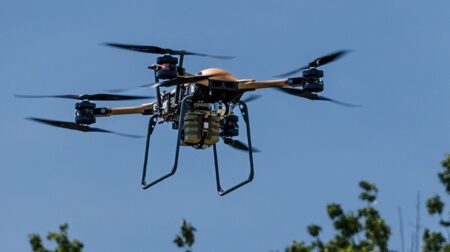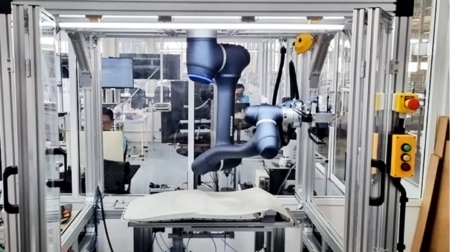The Department for Transport (DfT) has awarded £1.96m in funding to 67 projects centring around transport technology as part of the UK government’s Transport Research and Innovation Grant (TRIG) programme.
Aiming to support the development of ‘transport technologies of the future’, the TRIG programme was announced in December 2022.
Speaking on the grant funding, Jesse Norman, transport and decarbonisation minister, said: “The government wants the UK to be a world leader in the future of transport and, through the TRIG programme, the Department for Transport is supporting innovators and businesses to decarbonise and improve transport while growing the economy and supporting jobs across the UK.”
One of the winning projects has received funding to explore how autonomous drones based out of small delivery hubs can be used to deliver small packages faster and cheaper to hard-to-reach rural areas.
The project, named IONA Logistics, describes itself as “a new kind of local logistics provider that mainly benefits rural areas, connecting unreached communities or those experiencing delivery surcharges due to the energy intensity of delivering there”.
The company’s work is based around the idea that using drones for the delivery of small packages to rural areas can cut costs, delivery times and carbon emissions while increasing efficiency.
The grant will help fund the development of an autonomous parcel dispatch and battery swap system, to “unlock the full potential of autonomous logistics networks”.
IONA says that this system will be integrated into its existing unmanned aerial vehicle (UAV) solution for deliveries in medical supply chains as well as rural logistics.
In September 2022, Richard Lochhead MSP, Scotland’s minister for small business, trade and innovation, voiced his support for an IONA drone delivery trial in his constituency of Moray. Lochhead has been campaigning for fair delivery charges in rural communities for over five years.
He said: “The plans put forward by IONA are ambitious and could revolutionise the way deliveries are carried out in rural areas by showcasing a new tech solution to this problem, so I’m keen to work with IONA and other stakeholders to look at a trial of this system here in Moray.”
Other projects that have been awarded funding under the TRIG programme include remote-controlled delivery robots.
The Port of Tyne in the Northeast has received a grant to explore the viability of using electric heavy-duty robots – both remote-controlled and, in some cases, automated – as a replacement to HGVs. If successful, these robots could be used to provide a cleaner and faster alternative, reducing delays in the delivery process.








